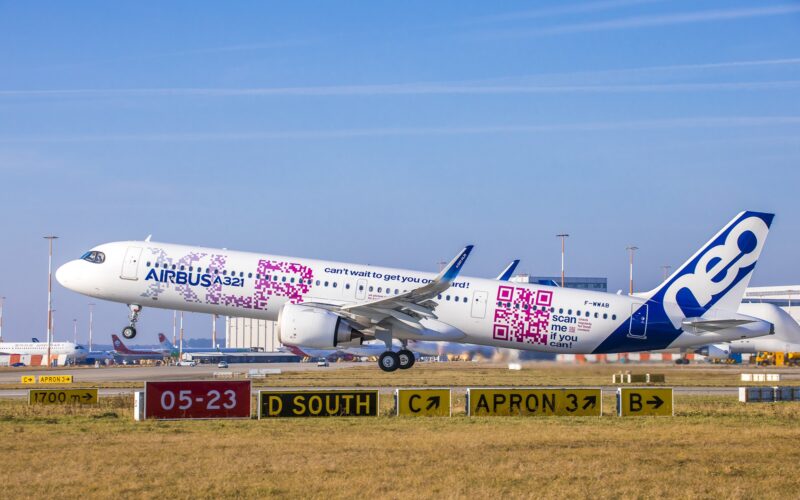Airbus warns airlines of potential A321XLR delay

Airbus is reportedly warning airlines that the first deliveries of the Airbus A321XLR, a modification of the A321neo that will offer additional range and more seating capacity, might be delayed by a few months.
Issues relating to the supply chain and regulatory inspections of the A321XLR’s new center fuel tank could delay the introduction of the type by a few months, reported Bloomberg, citing sources familiar with the matter. When Airbus announced the A321XLR in June 2019, the company noted in a press release that “starting from 2023, the aircraft will deliver an unprecedented Xtra Long Range of up to 4,700nm – 15% more than the A321LR and with the same unbeatable fuel efficiency”.
The manufacturer was forced to delay the program by a year or so, as the European Union Aviation Safety Agency (EASA) was looking at the design changes of the lower fuselage, and the potential need to change the A321XLR’s underbelly fairings. As a result, the program was delayed to 2024.
When the aircraft type took off for the first time in June 2022, Airbus noted that “entry into service is targeted for early 2024”. A few months later, following the United States (US) Federal Aviation Administration (FAA)’s comments about the Rear Center Tank (RCT) and its placement at the back end of the fuselage, EASA sided with the US-based regulator, stating that Airbus should reinforce that area. The decision was made to “ensure adequate occupants protection against the risks of external fire and burnthrough, fuel vapour ignition and fuel tank explosion as well to ensure crashworthiness of this fuel tank so that no fuel is released in sufficient quantities so to start a serious fire in an otherwise survivable crash event,” read an EASA document, published in December 2022.
Supply chain issues have affected aircraft manufacturers, including Airbus and Boeing, which have been grappling with parts and labor shortages throughout every supply chain link. When the European planemaker announced its financial results for 2022, the A321XLR’s entry into service was reaffirmed and scheduled for mid-2024.
However, supply chain disruptions “caused shortage or delay of materials and parts, hampering the Company’s production ramp-up,” read the company’s notes for 2022. On the A320 program specifically, which covers the A319neo, A320neo, and A321neo, including the A321neo variants like the LR and XLR, as well as current engine options (ceo) aircraft, “the ramp-up trajectory has been adapted with suppliers”, the manufacturer noted.
Airbus is now moving towards a monthly production rate of 65 aircraft by the end of 2024 and 75 in 2026. Previously, the European company’s guidance was a rate of 75 aircraft of the A320 family “by mid-decade”.
